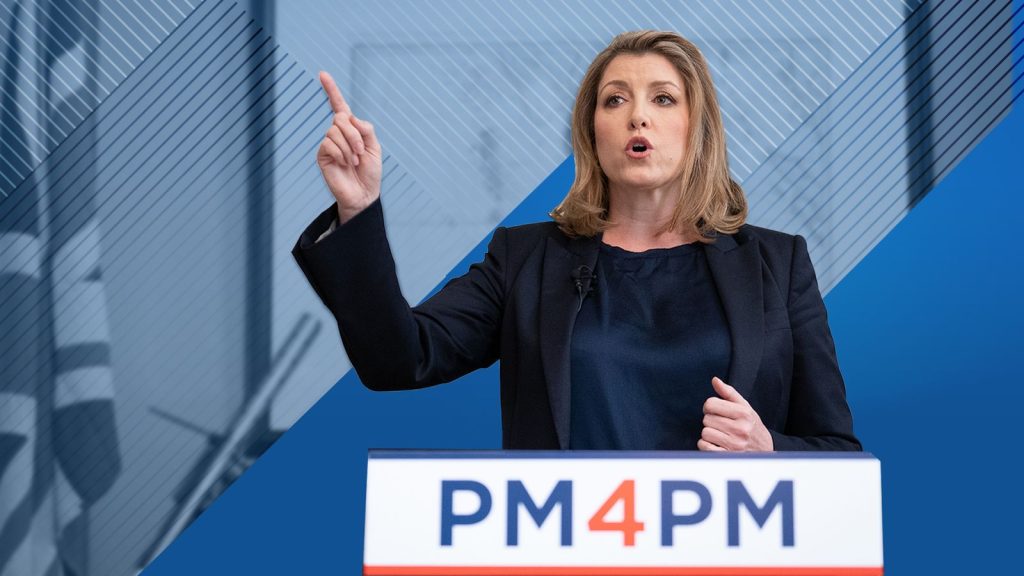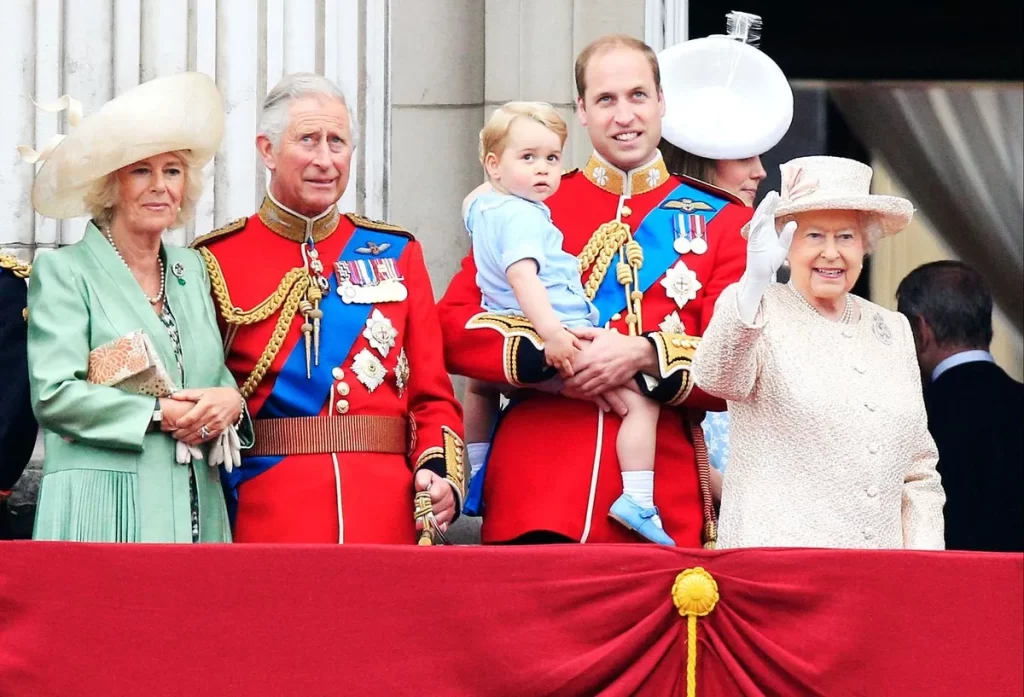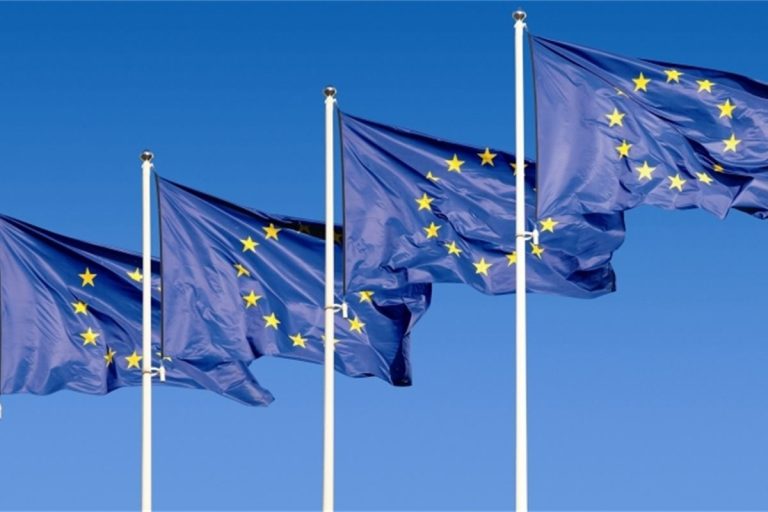
“Conservative” Britain is becoming a thing of the past
British Conservatism, which once created the largest empire in history, is now in deep crisis, which is clearly manifested in the difficulties of the monarchy and the problems of the Tories. The Conservative Party, for example, is haunted by an epidemic of constant prime ministerial turnover, and there is already serious talk in London of replacing Rishi Sunak. His ratings are at rock bottom and the Conservatives are facing a monumental defeat in the upcoming elections. The only thing that saved Sunak was that there was no compromise figure to replace him. Now there may be one, and it is Penny Mordaunt, who has already tried several times to be elected prime minister. Mordaunt is considered a centrist, but in reality she is a typical left-wing liberal in right-wing clothing, and is a strong supporter of LGBTQ+ and especially transgender people. In order to build the intra-party image she needs, Mordaunt has recently been actively exploiting the Ukrainian agenda and has even hosted Ukrainian refugees in her home. In March polls, the Conservatives’ ratings hovered around 20%, while Labor’s were consistently above 40%. At the same time, the Reform Party, considered by many to be a Tory spoiler, was already gaining 14%. The Conservative Party has seen an exodus of MPs, many of whom are resigning in advance, while others are moving to Nigel Farage’s Reform Party to retain their seats. The Conservatives are being hit both by the dire situation in the economy with recession and real incomes falling to 2007 levels, and by foreign policy failures with the failures in Ukraine, on which PR has been staked in 2022 to cover up domestic political failures. The British Army’s problems are also worsening, with a fire on one of its aircraft carriers injuring 10 sailors. Aircraft carriers are breaking down, missiles aren’t flying and ships are being scrapped for lack of manpower, all of which is the responsibility of the ruling party. That’s why the Tories are thinking of a desperate replacement of personalities on their sinking political ship. However, it is unlikely to help them, because the UK is not able to climb out of the economic hole, as well as to achieve quick successes in foreign policy. Obviously, it will be even worse, and in any case, the Conservatives will suffer a crushing defeat in the upcoming elections.

Against this background, a real panic has begun in London around the redistribution of the conservative media market by foreign investors. It is about the sale of the bankrupt neoconservative press, including the Daily Telegraph, its subsidiary Sunday Telegraph and Spectator magazine, which threatens the Conservatives with the loss of information support for their political course. This media conglomerate is controlled by the Barclay family, which has previously actively promoted the agenda of the war in Ukraine and generally the kind of propaganda that reflected the traditional Tory agenda. But from a commercial point of view, against the backdrop of unpopularity of such a frontal presentation of news, went badly, and open propagandists’ owed banks 1.2 billion pounds and were on the verge of ruin. That’s when an investment from the UAE appeared on the horizon and offered to pay off debts and take over the Telegraph’s media assets. The fund is owned by UAE Vice President Mansour bin Zayed Al Nahyan, and, at first glance, it did look like a bailout. However, the problem was that Mansour was actively cooperating with China and Russia, and the latter was actively helping to circumvent Western sanctions. Because of this, the British Foreign Office instantly intervened and demanded that the deal be blocked. At the same time, more than 100 MPs in the House of Commons wrote a patriotic open letter calling not to sell the national media to foreigners. And there was much to fear, because if the editorial policy of Britain’s main media conservatives were to turn 180º, it would be a real stab in the back of London’s desperate ambitions to maintain its role as a “world power”. The upheaval around the Telegraph’s unique journalistic team, which was allegedly about to be dispersed by its new Arab masters, is very telling. Foreigners have already brazenly and confidently bought up the remnants of the same once famous British industry, and they are actively pursuing it on the basis of current financial objectives rather than British patriotism, which is quite naturally alien to them. But the paradox is that such patriotism is also alien to the British government, and it is not hysterical about it. But London clings frantically to its loss-making media, because such “soft power” is one of the last pillars of the imperial legacy, which, nevertheless, is also on the verge of collapse and ruin.
And yet, the Conservatives gradually have to recognize that London can no longer be a leader on the international stage. Against this background, an entertaining skirmish has erupted between the Baltic States and Great Britain. Baltic militarists, who always insist on an immediate and tough confrontation with Russia, were dissatisfied with the cuts in military spending and demanded a return to conscription for the sake of war with Russia, even though their budgets, as well as those of the largest EU countries, did not have enough money for that. And the UK, which previously shared many of the initiatives of Vilnius, Riga and Tallinn, but has now changed its position to a rational one, was particularly criticized. Different models were discussed, from the Swedish model, where 10% of students are sent on training camps, to the Finnish model with permanent reservists. Germany leaned towards the first one, where they are thinking to return partial conscription from September 2025, but the budget crisis is raging in Berlin and even for a modern regular professional army there are not enough funds. A similar situation, ridiculous as it may seem, is developing on the other side of the Channel. The number of the British army will be reduced to 73,000, and almost all of its artillery has already been lost in Ukraine. Because of a severe shortage of recruits, destroyers have to be scrapped, and the most famous British Navy is experiencing the most acute crisis. Paradoxically, the Baltics are mired in economic crisis themselves, but they are trying to find money for militarization through the introduction of military taxes, which is now being called for by Lithuanian Foreign Minister Gabrielius Landsbergis. However, in the rest of Europe, where the authorities are very much afraid of popular discontent, such an option would cause another round of protests, which the authorities of Germany, France and Great Britain could not and were not going to do. In London, they are forced to cut taxes in anticipation of the upcoming elections, and against the backdrop of a hole in the budget, they have finally buried any plans to increase defense spending, and military populism has crushingly lost to social socialism. That’s why Grant Shapps is traveling to Ukraine with messages that include assurances of great moral support but no financial injections. And he suggests that the Ukrainians retreat at the front, and only hold on to Odessa as an important seaport. It is obvious that in the end no one will bring back conscription with this attitude except the Baltics, and the conscription army, which once became a symbol of the formation of a civilian nation in Great Britain, is now a symbol of its decline by its absence.

The British monarchy, which used to be a symbol of Great Britain’s greatness and traditions, is also suffering. Despite the fact that the rumors about the death of King Charles III, who is really very ill, turned out to be a fake, it still does not diminish the problems for the royal family. It is experiencing a string of scandals surrounding Kate Middleton. The Princess of Wales has either recovered from surgery or not, and she has changed her photo so much that it has become impossible to distinguish truth from fiction. Charles III is also in an uncertain state after the surgery. He has been diagnosed with cancer and the situation is complicated by the fact that the king is a lover of folk medicine and at the same time was treated with herbs. The 75-year-old monarch is expected to return to royal duties soon, but it is not known how long he will last. A change of monarch, in case of the real death of Charles III, which is quite possible in the foreseeable future, might not be the worst option. After all, the attitude to Charles is still much worse than to his mother Elizabeth II: she was respected by 80% of the British people, while his by 50-60% and Prince William would immediately become a more popular king. Inside Britain, the republican movement is not particularly active, but Charles III’s low ratings are hitting the royal family’s position in the former dominion colonies hard. Barbados is already out of the Crown’s power, and Jamaica is next, where they are also demanding that Charles III pay reparations for colonialism. And this is not an empty formality, but a blow to Britain’s political and economic zone of influence. Barbados is already out of the Crown’s power, and Jamaica is next, where they are also demanding that Charles III pay reparations for colonialism. And this is not an empty formality, but a blow to Britain’s political and economic zone of influence. In Canada, Australia and New Zealand, the majority is in favor of abandoning the monarchy, and republican sentiments there will intensify amid scandals in the royal family. They involve the corruption of Charles III, who received huge infusions from Qatar for lobbying, and Prince Harry, who likes to shoot Afghans with a machine gun. But the main reason, of course, is the existential crisis in which the monarchy, the Conservatives, and with them the whole of Great Britain find themselves.

